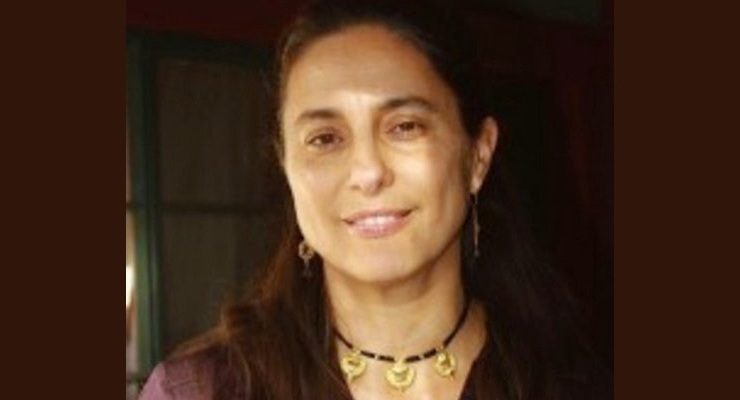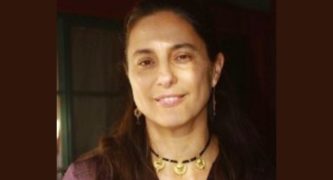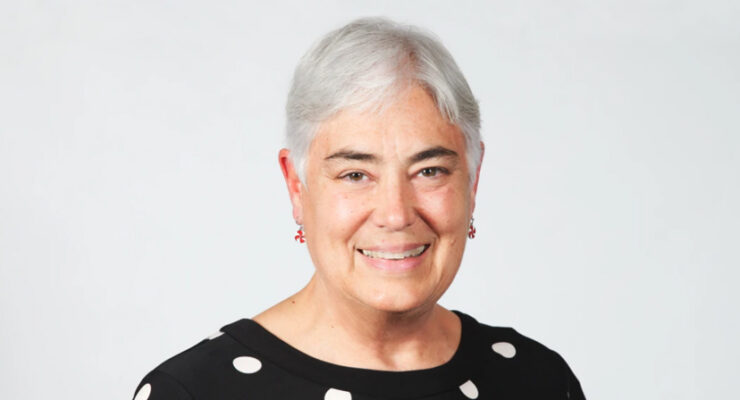
The Pasadena Sister Cities Committee’s Senegal Subcommittee’s virtual speaker series continues at 6 p.m. on Thursday with a talk about reproductive justice for people living with HIV and lessons learned from research in Africa.
Dr. Deborah Mindry, a research anthropologist who was born in South Africa and lives in Altadena, will speak about her ethnographic research on HIV, gender dynamics and reproductive health in South Africa, Malawi, Uganda and Southern California.
The Senegal Subcommittee facilitates the diplomatic relationship between Pasadena and Dakar-Plateau, Senegal, Pasadena’s first sister city in an African country. Mindry’s research focuses in particular on reproductive health for couples living with HIV. She is a research anthropologist at the UC Global Health Institute’s Center for Women’s Health, Gender and Empowerment, a University of California-wide initiative that stimulates, nurtures and promotes global health research, education and collaboration.
“Globally, what we’ve done a really good job of is ensuring that an HIV-positive mother doesn’t infect her infant,” Mindry said, referring to Prevention of Mother to Child Transmission (PMTCT). “But what we have not done systematically anywhere in the world is help couples with HIV, particularly where they’re what we call serodiscordant, where one is positive and one is negative, and trying to ensure that the HIV-negative partner doesn’t get infected when they try to conceive a child.”
The Pasadena Sister Cities Committee’s Dakar-Plateau Subcommittee had a number of in-person events and cultural exchanges in mind before the COVID-19 pandemic intervened. To help bridge that gap, they’ve launched a virtual speaker series as a way to educate the public and keep that relationship connected, said Boualem Bousseloub, chair of the subcommittee.
The idea of partnering cities grew out of the Twin Town concept in Europe in 1946 following World War II. Ludwigshafen was selected in 1948 by the Pasadena branch of the American Friends Service Committee. America’s involvement came in 1956 following President Dwight Eisenhower’s White House conference on citizen diplomacy, out of which grew Sister Cities International (SCI). Pasadena formally established its Sister Cities chapter in 1960.
Pasadena has six Sister Cities partnerships, with Ludwigshafen, Germany (1948); Mishima, Japan (1957); Järvenpää, Finland (1983); Vanadzor, Armenia (1991); the Xicheng District of Beijing, China (1999); and Dakar-Plateau, Senegal, which was approved by the Pasadena City Council in 2018 after many years of discussion, planning, and research, including an exploratory delegation to the West African city led by Bousseloub and City Councilmember John Kennedy.
Following approval by both cities, Dakar-Plateau Mayor Alioune Ndoye led a delegation to Pasadena in June 2019 and then-Pasadena Mayor Terry Tornek led a delegation to Dakar-Plateau in March 2020 to finalize the partnership. Dakar-Plateau has a population of nearly 37,000 people and is one of 19 districts of Senegal’s capital of greater Dakar, serving as its political, financial and commercial center.
At the Sister Cities event, Mindry will mainly focus on the lessons that she has learned in African settings, but will also “reflect on what that means here in the United States, particularly for communities of color, African American communities and Latinx communities.”
Mindry said whether in African countries or here in Southern California, low-income people and people of color are always disproportionately affected when it comes to HIV.
“We still have huge issues of stigma, everywhere in the world and in the United States as well, which makes it very difficult to get people to test and to stay on treatment,” she said. “That’s part of the reason why I focus on reproductive health, because part of the stigma in many societies is that people with HIV have been told they can’t have children. Well, they can have children, but we really need to bring them in for counseling and help them understand what they need to do to ensure that they have children safely.”
She added that when people are able to safely have children and families, “it gives them a reason to live. It’s also part of the process of de-stigmatizing having HIV, that you can still have a normal life.”
Mindry is currently working on a book manuscript, “I am HIV: Ordinary People Daring to Live and Make Change in South Africa,” which challenges conceptions of Africans as victims of HIV, arguing instead that it is people on the ground who are figuring out how to live and thrive with an infectious disease.
“The book focuses on the important role that people living with these kinds of diseases play and tries to help others in their families and communities really understand what they need to do to prevent getting HIV,” she said. “I’m making an argument in the book that global health initiatives need to significantly work with people on the ground as part of the initiatives, that working only from a healthcare perspective is insufficient. We need to work with people living with these diseases who can become part of the solution.”
Mindry said the COVID-19 pandemic has dramatically increased people’s interest in global health, while at the same time diverting much needed resources away from HIV, malaria and tuberculosis prevention and treatment efforts.
“COVID has made people begin to realize that we really are all globally connected and that when we see an infectious disease in one part of the world, that it’s not isolated,” she said. “It’s made people aware that it’s not just a problem that people over there deal with, that this becomes a problem in other places. But because most of the resources have now been appropriated for COVID, there’s not the same labor force attending to some of these other issues. The other problem is with shutdowns in various parts of the world; people living with those diseases are not getting to the clinics and not getting their treatments and so forth.”
She added that there is concern among public health practitioners that COVID will result in a further setback in trying to achieve the goals of the UNAIDS’s 90-90-90 initiative, which aims to get 90 percent of the people who are estimated to be infected with HIV to get tested and know their status, 90 percent of those who test positive for HIV to get on antiretroviral treatment and 90 percent of those who are on treatment to adhere to their treatment.
“We were supposed to achieve the goals by 2020, which we did not, and we are still a good way away from achieving them,” she said. “But if we’re able to reach those goals, then we will begin to turn the tide on HIV. Currently, the rates of new infections exceed the number of people being enrolled in treatment.”
Mindry pointed out that countries in Africa are far behind COVID vaccine-producing countries such as the United States, but that many have existing public health measures in place which may be one of the reasons why there haven’t been massive rates of infection so far.
“From the get-go, many African countries have already been screening people,” she said. “When I travel to parts of East Africa, for example, to do my work, I’m always screened at the airport. Long before COVID, they required a yellow fever vaccination record before you’re permitted to enter those countries. Just before the pandemic, I was traveling between Rwanda and Uganda, and they make you stop at the border and walk into a chlorine bath to sanitize your shoes. You have to wash your hands, they take your temperature and then you get to cross the border. Because they’ve been dealing with infectious diseases and they don’t have the healthcare infrastructure that we have, they get on top of it right away.”
Register for the June 10 Sister Cities event with Dr. Deborah Mindry at bit.ly/DakarJune10.














 0 comments
0 comments


